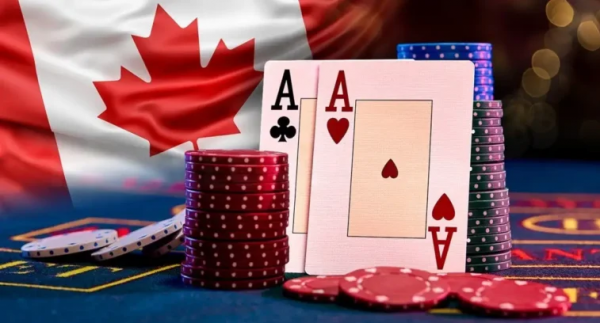Poker has had ups and downs when it comes to the game’s battle to be seen as legitimate in the eyes of certain people. While the game has undoubtedly been experiencing an uptick in recent years, there are plenty of people who would like nothing more than to damage the reputation of poker and even outlaw it altogether. There’s been a lot of talk within the poker community as of late with regard to what’s “good for poker”. That discussion aside, what can’t be denied is that there are certain types of publicity that would be bad for poker.
While there’s that famous old saying that there’s “no such thing as bad publicity”, below are a few examples of situations that would give poker the type of publicity it seeks to avoid.
Phil Ivey Loses Baccarat Court Appeals, Pay Borgata Millions
How often do you come across a headline that says that a player has been ordered to pay back money to a casino? Not very often. Most people enter a casino knowing that they will likely lose money. They cling to the hope that Lady Luck will smile upon them and grant them the good fortune to possibly come out ahead. However, not all players enter with this mentality.
Professional poker player Phil Ivey went into the Borgata casino in Atlantic City, NJ in 2012 with a plan in mind to improve his odds of winning dramatically. Phil and a friend used a technique called “edge-sorting” to help improve their odds of winning at a version of baccarat. The technique involves noting various inconsistencies on the playing cards that give away the nature of the card being either a high value or low value card. A court ruled that this violated the contract that players enter when they walk into a casino. It is prohibited in New Jersey to mark cards in any way that gives a player an advantage in the game. While Ivey and his friend did not physically mark the cards or use any type of sophisticated casino technology, they were still ordered by the court to repay the nearly $10 million worth of winnings that they made by using the technique.
Details on Phil Ivey’s Baccarat “edge sorting” approach which I haven’t read elsewhere – from @KaplanWords https://t.co/sHGuue5QH7
— RJ Bell (@RJinVegas) July 16, 2017
There’s a similar case currently in the UK Supreme Court regarding money Ivey won in a similar fashion at Crockford’s Casino (but he was never paid out, so he’s suing them for his winnings). Poker players pretty much universally take Ivey’s side, arguing that he was able to spot an edge and took full advantage; that it was the casinos’ responsibility to have better protected themselves.
Were Ivey to end up losing in either of these cases and having to pay back money he won, it would unfortunately be classified as “bad for poker”.
Another “Black Friday”
A terrifying thing for any online poker player is the thought that the site they are playing poker on right now could very well be gone tomorrow, meaning no way to retrieve the funds in your account. This would never happen on a licensed, regulated online poker site, but it could happen “any minute” to unlicensed or unregulated online poker sites.
We all know what happened back on the original “Black Friday” of April 11, 2011, when the U.S. Department of Justice took down all the biggest poker sites. PokerStars immediately refunded their American players and continued operating only in jurisdictions where they were licensed to do so. Players on the other fallen sites, Absolute Poker and Full Tilt Poker, weren’t so lucky, as their funds were withheld for years before finally being remitted.
There are two Black Fridays:
On one of them, you could no longer play poker in your home.
On the other, you should never leave your home.— Norman Chad (@NormanChad) November 24, 2016
The fallout for those who headed up what were deemed to be “ponzi schemes” was pretty brutal, but far worse was the black eye that the poker industry received. It was something that left many players infuriated, and many decided that online poker was no longer for them.
With poker finally experiencing a resurgence these days after a lengthy nadir, another “Black Friday’ is the last type of publicity we need.
Titans of Poker Go Bankrupt
The big names in poker are the people who we see on television. Those who watch poker shows can tell you the names of some of the greats that appear on the programs. They become well-known either for their incredible winning abilities, eccentric personalities, or both. However, many do not realize that some of these individuals actually have a very checkered financial history.
It is hard for the average person watching their poker heroes on television to imagine those guys ever going broke. We see them playing for huge sums of money and just assume that they’ve got sizable bankrolls. Unfortunately, however, many successful poker players have had problems holding on to their money and have historically had trouble with other gambling losses.
Stu Ungar’s Last Chance Gone Wrong – Short Poker Documentary @PokerListings @mattshowell https://t.co/txcxvzlVbR
— Allen Kessler (@AllenKessler) October 3, 2016
Needless to say, stories like these – when professional poker players fall on hard times, losing vast fortunes due to gambling – are not helpful in improving the image of poker.
Many in the mainstream don’t distinguish between poker and other forms of gambling, so they’ll automatically group the two together. It makes it that much harder to convince people that this is a game worth legalizing and regulating when they see headlines declaring that notable poker players have lost their fortunes.







Comments